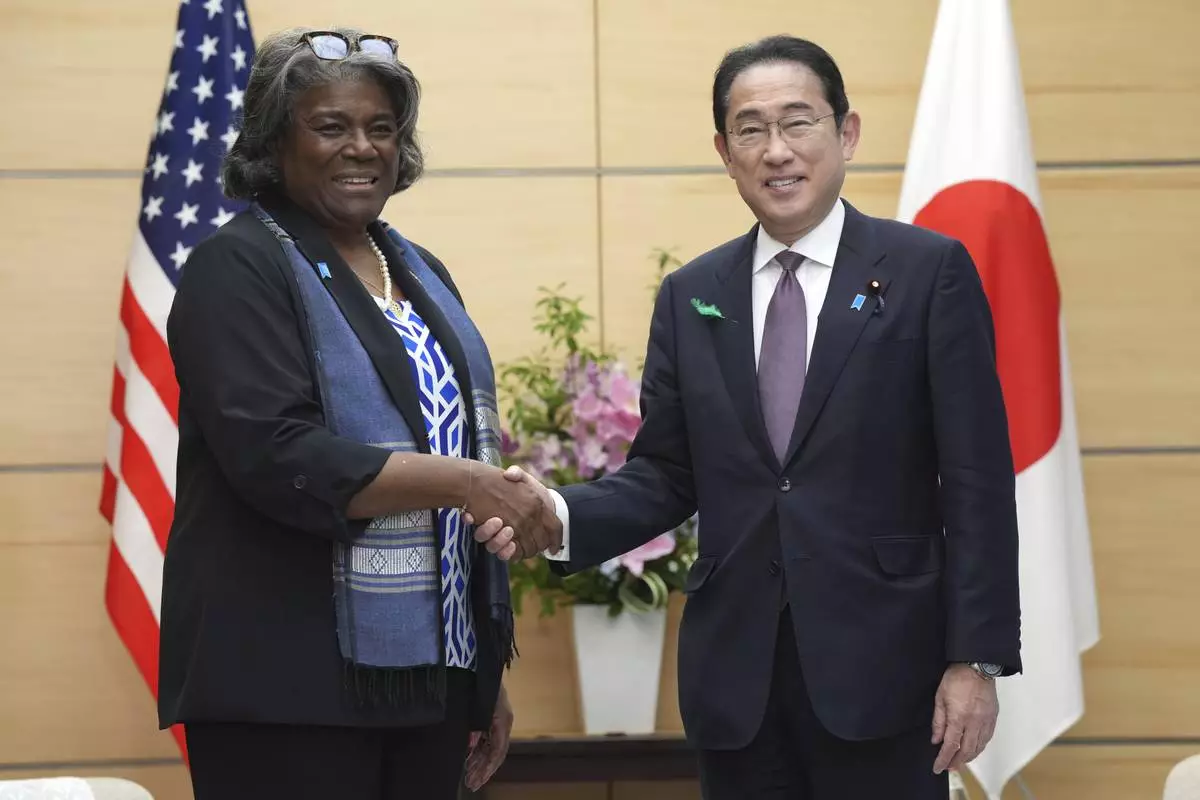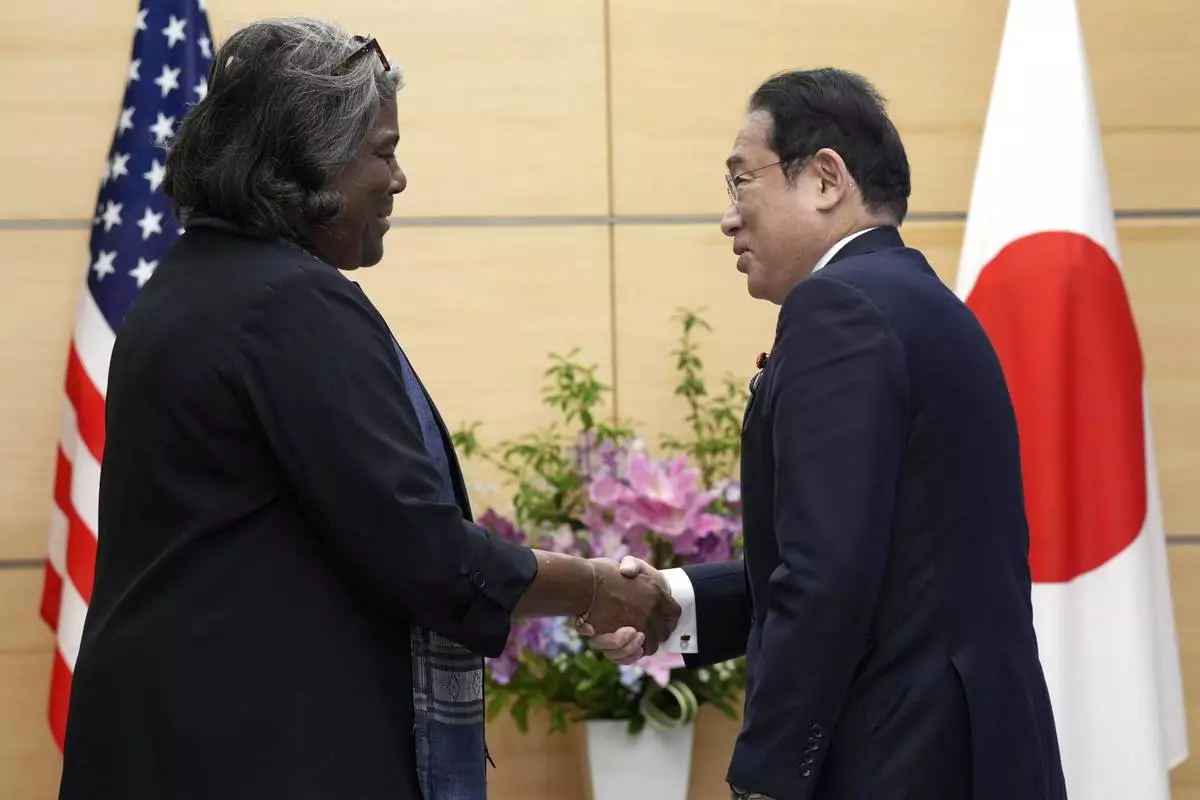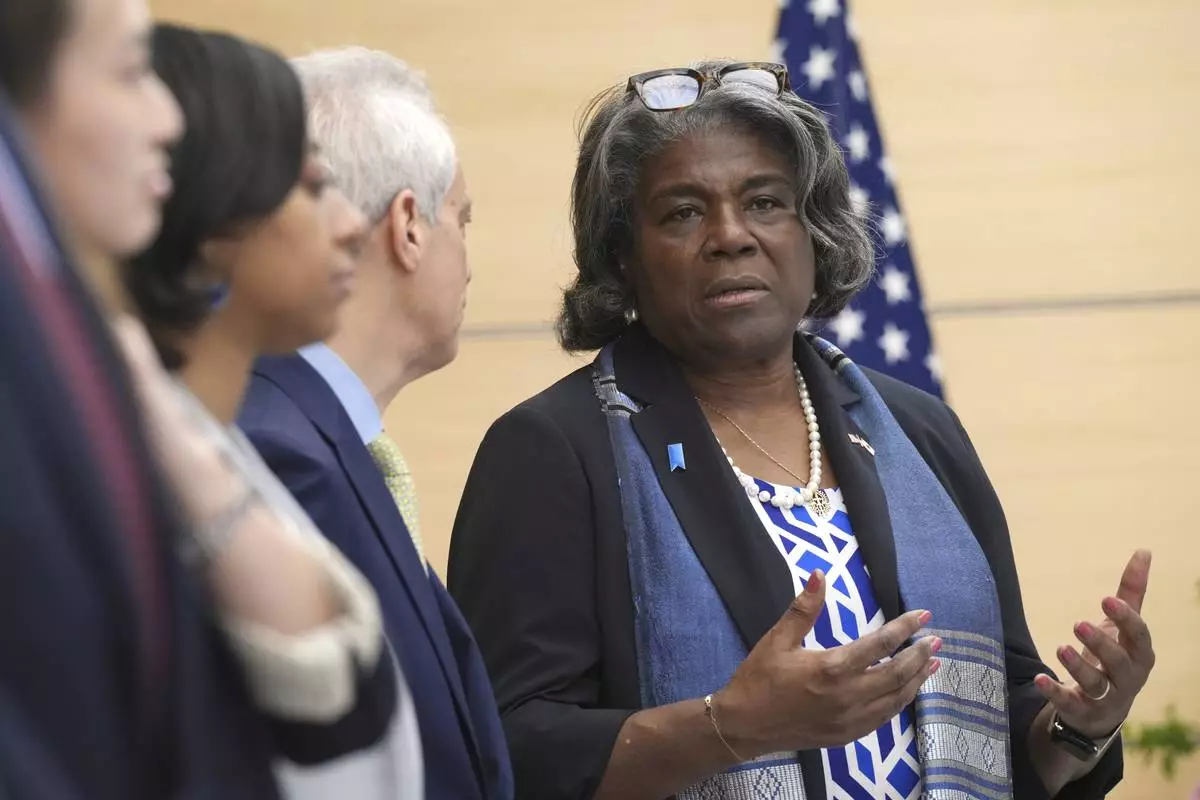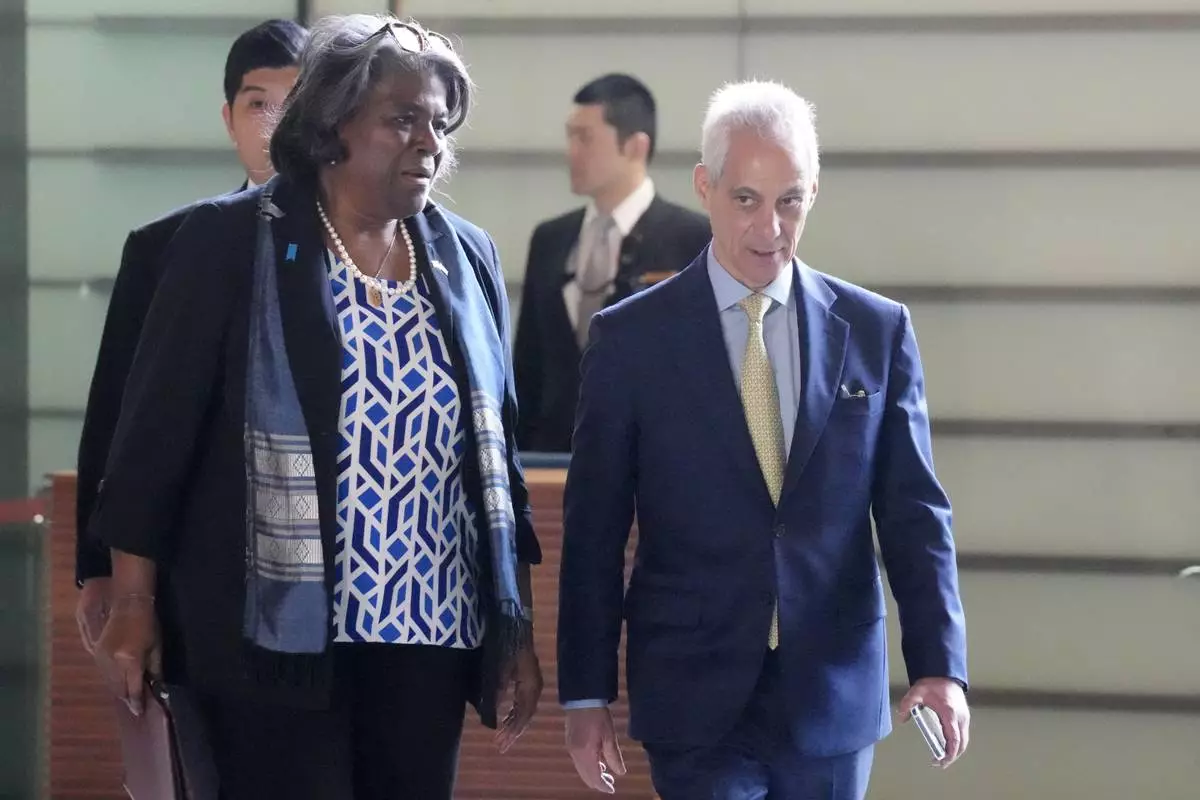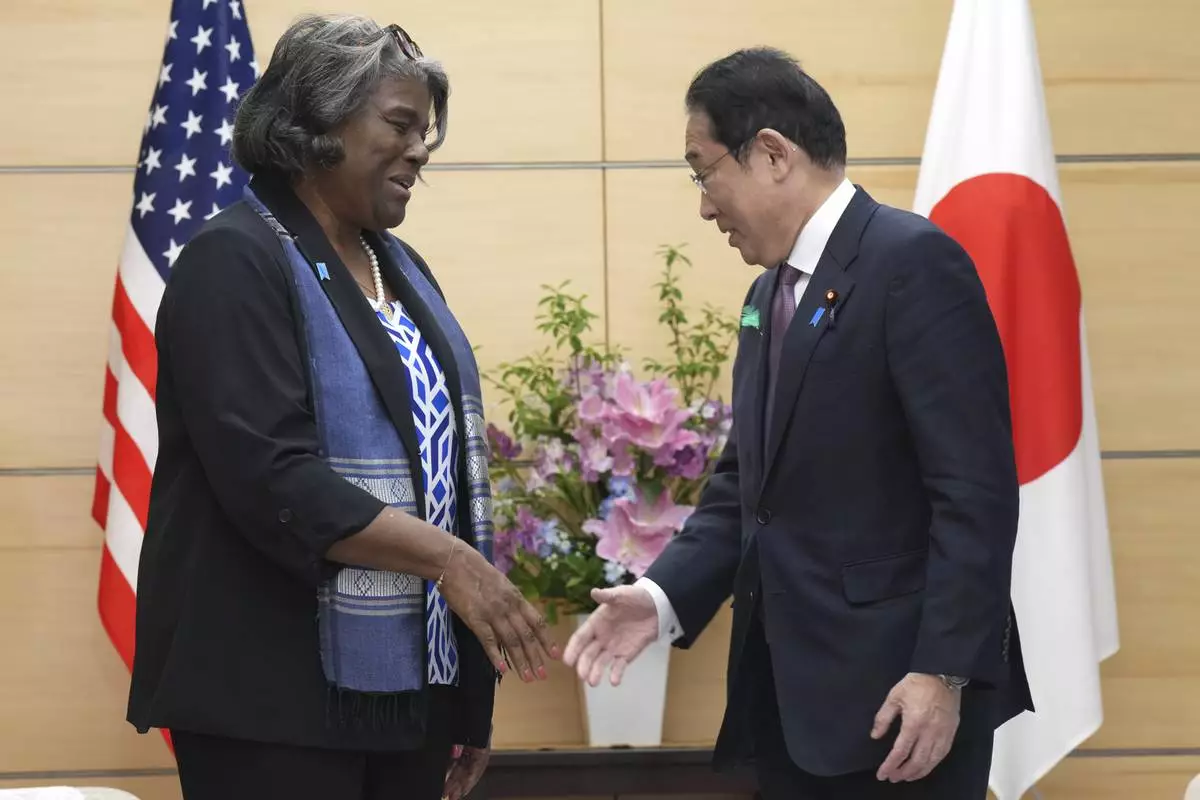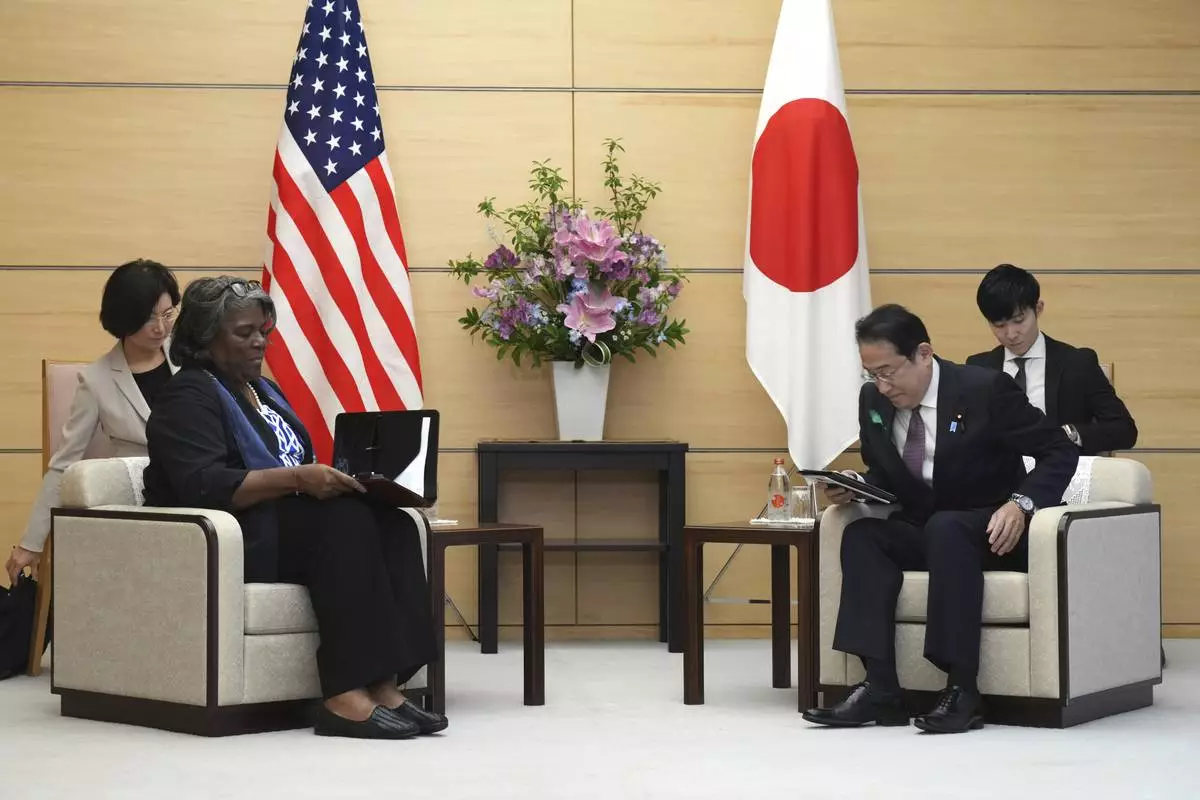California's liberal Legislature wants to give poor people a lot more money in their state tax refunds each year, including an extra $1,000 for people who earn less than $30,000 a year and have at least one child under 6.
But to do it, they'll have to agree — at least partially — with Republican President Donald Trump.
Democratic Gov. Gavin Newsom's spending plan would triple how much the state spends on its earned income tax credit to $1.2 billion, making about 1 million more households eligible to get it. To pay for it, California would have to adopt some of Trump's 2017 tax overhaul that was despised by Democrats, especially in California, because it capped the amount of state and local tax deductions in a move they say disproportionately hit high-income, high-taxed states.
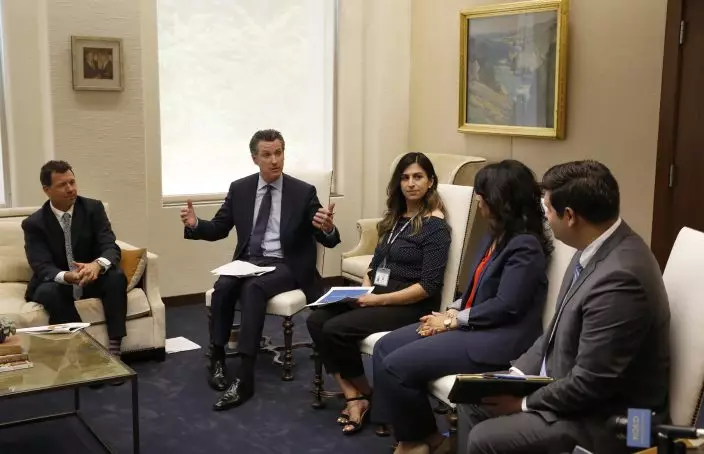
In this photo taken June 4, 2019, Gov. Gavin Newsom meets with a group of small business owners and government officials to discuss tax relief at his Capitol office in Sacramento, Calif. Lawmakers approved the state budget, Thursday, June 13, 2019, that includes an expansion of the state's earned income tax credit. Newsom wants to pay for it by adopting some of President Donald Trump's 2017 tax overhaul, but Assembly Democrats are cautious about this idea. (AP PhotoRich Pedroncelli)
State lawmakers last week sent a $214.8 billion operating budget to Newsom's desk that included the expansion of the state's earned income tax credit. But they have yet to adopt the tax changes to pay for it, leaving a hole in the budget and prompting intense negotiation.
The state Senate could approve the proposal on Monday. But there is trouble in the Assembly, whose members are up for re-election every two years in a state where Trump remains unpopular.
"You have a federal tax law that was passed with the intention, in our opinion, to harm California. They don't like who we are, they don't like our politics, they don't like what we represent," said Assemblyman Ian Calderon, a Democrat from Whittier and the Assembly Majority Leader. "It's been difficult for us to kind of get to a position where we are comfortable with conforming to a law that really, in its conception, was meant to harm us as a state."
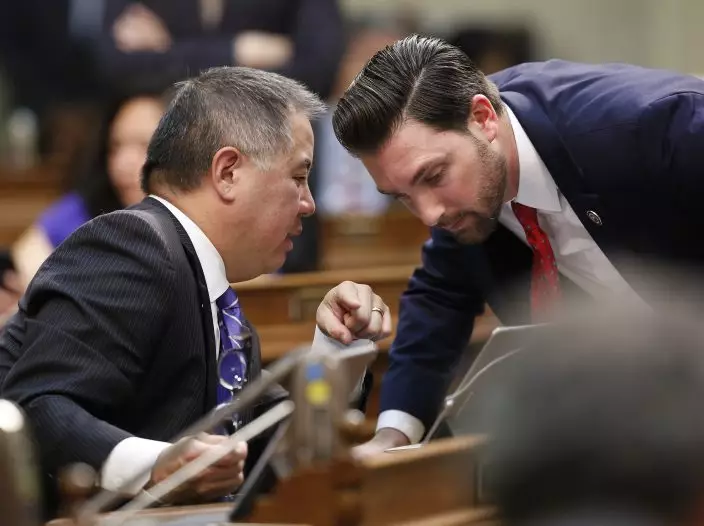
FILE - In this June 13, 2019 file photo, Assemblyman Phil Ting, D-San Francisco, left, chairman of the Assembly Budget Committee talks with Assemblyman Ian Calderon, D-Whittier, right, huddle during the Assembly session, in Sacramento, Calif. California lawmakers approved the state budget that includes an expansion of the state's earned income tax credit. Calderon said Assembly Democrats are having trouble reaching an agreement on conforming the state's tax code to some of the federal changes President Donald Trump signed into law in 2017. Gov. (AP PhotoRich Pedroncelli, File)
Newsom's plan would not adopt all of the federal government's changes. Instead, it would focus on the ones that mostly affect business income. Some changes would lower taxes and others would increase them. Taken together, the changes in the governor's plan would generate an additional $1.8 billion for the state, according to the California Department of Finance.
"The Trump administration got rid of these loopholes at the federal level to be able to provide a deeper tax cut to corporate America," said Mike Herald, director of policy advocacy for the Western Center on Law and Poverty. "We're flipping that on its head. Instead, we're going to use the same money ... to help people who need it the most. I think most of the progressive liberal members of the Legislature are completely comfortable with that."
Leaders who support the change include Sen. Toni Atkins, a San Diego Democrat who is the Senate's top leader. Atkins said Thursday the tax changes are "really important" and that "my colleagues want to see this done."
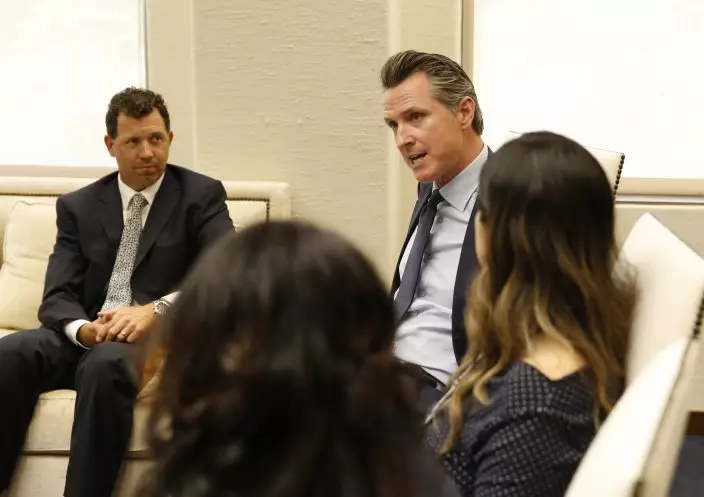
In this photo taken June 4, 2019, Gov. Gavin Newsom meets with a group of small business owners and government officials to discuss tax relief at his Capitol office in Sacramento, Calif. Lawmakers approved the state budget, Thursday, June 13, 2019, that includes an expansion of the state's earned income tax credit. Newsom wants to pay for it by adopting some of President Donald Trump's 2017 tax overhaul, but Assembly Democrats are cautious about this idea. (AP PhotoRich Pedroncelli)
"Sometimes taking the political perspective is not practical for what you need to do on the ground," she said. "When someone tells me this can support small businesses in the state of California, you know, I'm all for it."
Things are less certain in the Assembly, where Calderon said lawmakers rejected the Newsom administration's presentation of the tax changes as an "easy vote."
Newsom's proposal included eliminating some fringe benefit deductions for businesses, including things like entertainment, food and transportation expenses. In May, Newsom told reporters the change would mean lawmakers could no longer write off their courtside seats at Sacramento Kings games.
But Calderon said Assembly members are concerned eliminating the deduction would hurt small businesses that use it.
"There is zero trust in just conforming blindly to anything in their proposal without thoroughly understanding what exactly we know we're signing onto," he said.
State law required lawmakers to approve an operating budget by midnight on June 15 or else lose their pay. The operating budget divvies up $214.8 billion in state and federal tax dollars. But lawmakers are still working out key details about how to spend that money in more than two dozen "trailer bills." The bills allow budget negotiations to continue past the deadline.
Not approving the tax changes could cause some budget problems. H.D. Palmer, spokesman for the Newsom administration's Department of Finance, compared the state budget to a building with the tax changes as a crucial part of the architecture. Without it, there would be no funding for the tax credit and lawmakers would have to recalculate the funding formula for public schools.
"If you take out a couple of the load-bearing beams, then you've got problems," Palmer said.
But Calderon said if lawmakers ultimately did not adopt the changes, the tax credit program would continue to exist. However, it would not be expanded in include more money and cover an additional 1 million households.



